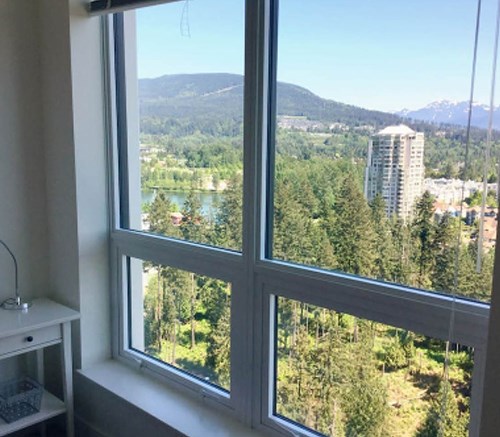The number of Airbnb listings in the Tri-Cities is on the rise as more homeowners turn to the short-term rental website to help supplement their income.
According to data from Airdna, a marketing research firm that tracks Airbnb analytics, there are 190 active users in Coquitlam, 32 in Port Moody and 31 in Port Coquitlam.
The listings that have turned some properties into lucrative enterprises.
A marketing report for Coquitlam (Airdna does not have specific marketing reports for Port Moody and PoCo) showed a two-bedroom listing in the City Centre neighbourhood made close to $26,000 in the last year — the highest in the city.
Another property listed as a “short-term vacation rental” made $24,405 in the last 12 months while a three-bedroom home in the Ranch Park area earned approximately $20,000, according to Airdna.
For people like Jenny Hsu and several other Airbnb hosts contacted by The Tri-City News, the website is a good way to make some extra cash.
“My daughter goes to school in the [United] States and the tuition is quite high,” Hsu said in an email. “Having many things to do at home, it was difficult to find a job that could accommodate with my schedule, so running an Airbnb was something that had more flexibility, especially being just downstairs.”
Hsu started renting on Airbnb after finding it difficult to keep long-term renters. She said the experience has been positive and she enjoys meeting her guests and finding out where they are from.
The Tri-City News contacted a number of local Airbnb hosts who declined to be interviewed or identified.
And not everyone is happy with the service’s presence in the region.
The city of Vancouver has been cracking down on listings and requires short-term renters to license their operations or face stiff fines. The municipality has also banned short-term rentals in homes that are not the principal residence of the host in an effort to ensure that Airbnb listings do not eat up all of the city’s long-term rental stock and affect affordability for local residents.
“The goal is the units that are not principal residences will be returned so people who want to live and work in Vancouver can do so,” Kaye Krishna, the city’s general manager of development services, said last fall.
In Coquitlam, Port Coquitlam and Port Moody, licences are required for anyone operating a bed and breakfast and regulations stipulate that the home in question must also be occupied by an owner and cannot be used solely for vacation rentals in a residential area. As well, many strata complexes’ bylaws do not allow short-term rentals.
That means full apartment rentals, of which a handful are listed on the Airbnb website, contravene municipal bylaws.
Jim McIntyre, Coquitlam’s general manager of planning and development, said the number of listings in the Tri-Cities is still fairly modest and may not warrant the type of crackdown seen in Vancouver, where there are an estimated 5,000 active users.
He notes that Airbnb can be a good way of helping people pay their mortgage, making home ownership more affordable.
“The flip side on the affordability piece is if these units are being rented out [for Airbnb], it takes them out of the [long-term] rental pool,” he said. “You are squeezing the housing supply.”
Short-term rentals could also have ramifications for other aspects of the city’s tourism sector.
McIntyre said council has been pushing for another hotel in the community for years, a goal that could be hindered if more tourists are turning to Airbnb for their holiday lodgings.
“By providing for tourist accommodation in this informal way, does that reduce the market for the more traditional brick-and-mortar hotels that we would like to see added to our asset base?” he said.
@gmckennaTC



